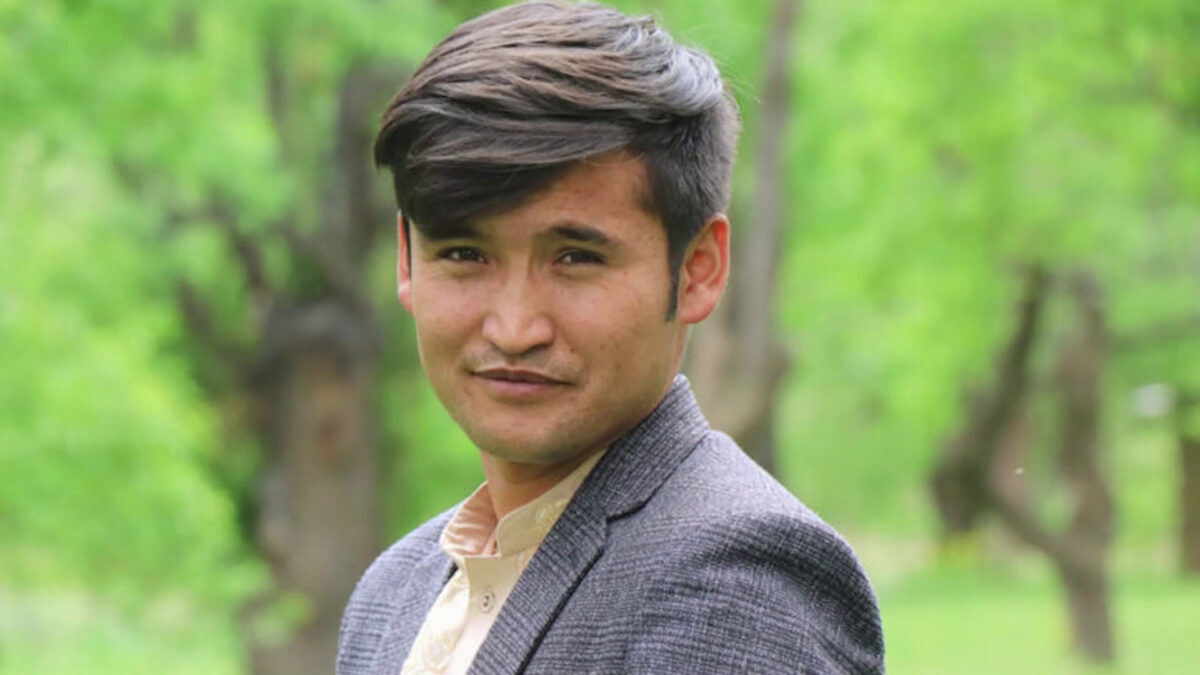Several organizations supporting journalists have decried the Taliban’s one-year sentence for Sultan Ali Jawadi, the editor-in-chief of Radio Nasim in Daikundi province, as a violation of mass media law.
These organizations have called for the immediate release of the journalist. Simultaneously, the Afghanistan Journalists’ Center has urged the Taliban to cease arbitrary arrests of journalists, emphasizing the need to safeguard freedom of expression in Afghanistan.
On December 12, the Taliban’s primary court in Daikundi handed down a one-year prison sentence to Sultan Ali Jawadi, accusing him of engaging in propaganda against the Taliban and espionage for foreign countries.
Media advocacy organizations contend that the verdict was rendered without the presence of a defense lawyer, deeming it unfair and unacceptable. Jawadi’s wife reportedly attended the private court session where the sentence was announced, leading to his prompt transfer to prison. Although the Taliban has not officially commented on the matter, sources suggest that Jawadi faces charges of “propaganda” against the Taliban and “espionage for foreign countries.”
This incident is not the first time reporters from Radio Nasim encountered issues with the Taliban. Previously, Jawadi, along with Saifullah Rezaee and Mojtaba Qasemi, were summoned to Taliban intelligence in Daikundi in September. The charges included airing Radio Azadi programs and engaging in propaganda against the Taliban administration.
Despite being released after a brief detention, the three reporters were arrested again on October 7 by Taliban intelligence. Qasemi spent 11 days in detention, Rezaee 11 days, and Jawadi 17 days. The Afghanistan Journalists Center noted that the release of the journalists was facilitated after providing guarantees, but Jawadi has now been taken into custody once again.
This situation underscores the challenges faced by journalists in Afghanistan, particularly those operating in areas under Taliban influence, and raises concerns about press freedom and safety. The Afghanistan Journalists Center continues to advocate for Jawadi’s release.
In the last two weeks, Zamir Zahiri, a local reporter in Parwan, and Abdur Rahim Mohammadi, a reporter for Tamdun TV in Kandahar, are among the journalists arrested by the Taliban.
The Afghanistan Journalists Center views the arbitrary detention of journalists by the Taliban as a “clear violation of the law on mas media.”
Several journalists have reported increased pressures and restrictions on the media since the Taliban’s return to power. According to Nai, an organization supporting open media in Afghanistan, before the Taliban takeover in August 2021, 530 media outlets were active, and 71 TV networks, 147 radio stations, 36 newspapers and magazines, and 10 news agencies and online media outlets were closed by the Taliban. Furthermore, 70% of journalists and media employees, predominantly women, lost their jobs.





